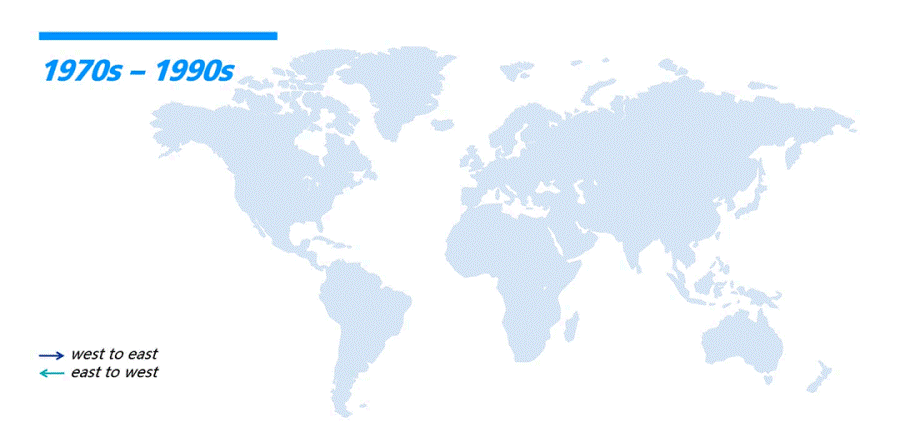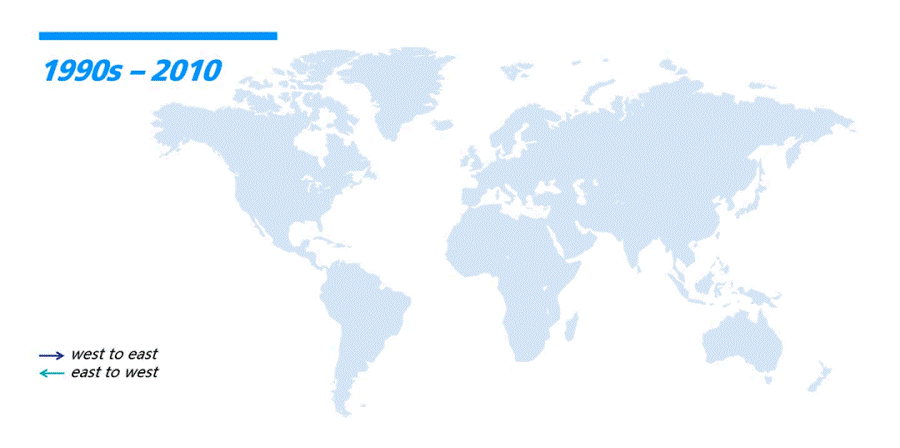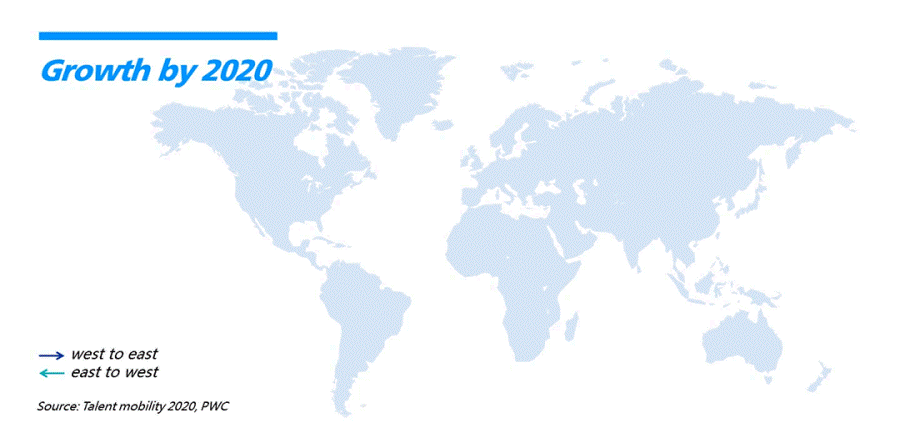How the changing face of global mobility is affecting retirement benefits

In the 1990s to 2010 a new era of global mobility began – talent flow was still predominantly west to east, but companies started to tap into talent pools in emerging markets as demand for global talent mobility increased. New markets emerged and a new breed of mobile worker emerged, including commuters and rotational assignments.

The proportion of companies expatriating more than one nationality has also increased over the years and as global mobility continues to grow. By 2020 employee mobility will become part of the norm, with talent mobility fluid across continents.

The rise of the developing world
The rapid growth in talent and mobility from emerging market economies such as India, China and Brazil raises many new challenges for the HR department of a multinational company.

This employee is typically younger than the traditional expatriate and sees working overseas as an essential part of their career development. They are likely to be more nomadic, readily expecting and happy to move from country to country throughout their career, many with no intention of ever returning home.
They are likely to be highly skilled, much sought after and less likely to be committed to one employer, meaning they are just as willing and adept at moving between employers as they are between locations. Many will target Western Europe and the U.S. to develop their career, but will equally look to the developing world for opportunities, whether this is the South and Central Americas, Africa or the Far East.
Retirement benefits
This new emerging global talent is unlikely to have an occupational pension and if they do it’s safe to say, this will no longer be a defined benefit arrangement. They will be younger and cash may be a much stronger driver than benefits, making retention more difficult as they move on for the promise of more ready income. Importantly though, they will fare badly from local pension and social security systems, which typically lack portability, resulting in a string of small deferred benefits across a number of countries. Retention in the employer’s home plan carries a number of risks and challenges, such as the possible creation of a cross-border scheme, regulatory time restrictions and providers’ inability or lack of appetite to include overseas workers.
Setting retirement benefits for internationally mobile employees is an emotive and complex area. However, as the global population gets older and advances in medical care mean we live longer, employers will be increasingly concerned about ensuring their employees have a suitable plan in place to help with their retirement planning.
In the next article we will look at how an aging population is putting a strain on state pension provision leading to pensions funding gaps.
This article is provided by Zurich.
Supplied by REBA Associate Member, Zurich
At Zurich, we’re proud to have been providing UK insurance for over 100 years. Whatever you’re looking to support or protect, we’ll do our best to help you.







